Autumn and winter seasons alternate.
The temperature changes greatly
Influenza enters high season.

Influenza (referred to as "influenza") is an acute respiratory infectious disease caused by influenza virus, which is harmful to human health. People are generally susceptible to influenza virus. High-risk groups such as pregnant women, infants, the elderly and patients with chronic diseases are more harmful after being infected with influenza. Places where people gather, such as schools, kindergartens and nursing homes, are prone to influenza outbreaks.
In order to better guide the prevention and control of influenza and the use of vaccines in China, the Influenza Vaccine Working Group of the National Immunization Planning Technical Working Group collected and sorted out the latest research progress at home and abroad, updated and revised on the basis of the 2022 edition of the guidelines, and formed the Technical Guide for Influenza Vaccine Vaccination in China (2023-2024).
Etiological basis and clinical symptoms
Influenza virus belongs to orthomyxoviridae and is a single-stranded, negative-stranded and segmented RNA virus. According to virus nucleoprotein and matrix protein, it can be divided into four types: A, B, C and D (or A, B, C and D).
Influenza infection mainly starts with fever, headache, myalgia and general malaise. The body temperature can reach 39 ~ 40℃, and there may be chills, chills, sore muscles and joints, fatigue, loss of appetite and other systemic symptoms, such as sore throat, dry cough, nasal congestion, runny nose, post-sternal discomfort, facial flushing, conjunctival congestion and so on. Some patients have mild or no symptoms.
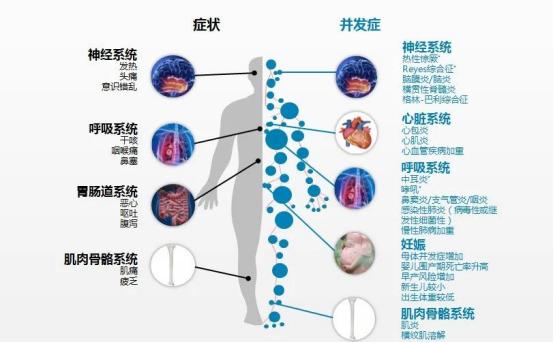
Epidemiological characteristics
Influenza patients and asymptomatic infected people are the main sources of seasonal influenza infection. Influenza is mainly transmitted through respiratory droplets, and can also be directly or indirectly infected through oral cavity, nasal cavity, eyes and other mucous membranes. People are generally susceptible. Studies show that the common incubation period of influenza virus is 1-4 days, mostly 2 days, and infected people can excrete the virus 1-2 days before clinical symptoms appear.
Recommended population for influenza vaccine
The Guide recommends that all people who are ≥6 months old and have no contraindications for vaccination should be vaccinated against influenza. Combined with the epidemic situation of influenza and the prevention and control strategy of multi-disease prevention, the harm of influenza is reduced as much as possible, and the following key and high-risk groups are recommended to be vaccinated in time:
Medical personnel, including clinical rescue personnel, public health personnel, health quarantine personnel, etc.;
Older people aged 60 and over;
People suffering from one or more chronic diseases;
Vulnerable people and employees in old-age care institutions, long-term care institutions, welfare homes and other crowd gathering places;
Pregnant women;
Children aged 6-59 months;
Family members and caregivers of infants under 6 months old;
People in key places such as kindergartens, primary and secondary schools, and supervision places.
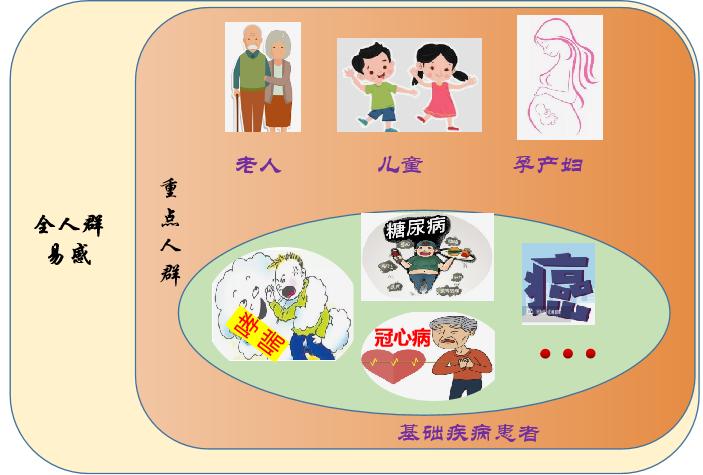
Selection of influenza vaccine
Influenza vaccines include inactivated vaccine and attenuated live vaccine. People without special contraindications can voluntarily get any kind of influenza vaccine from any manufacturer. The specifications and applicable population of influenza vaccine are shown in the following figure:
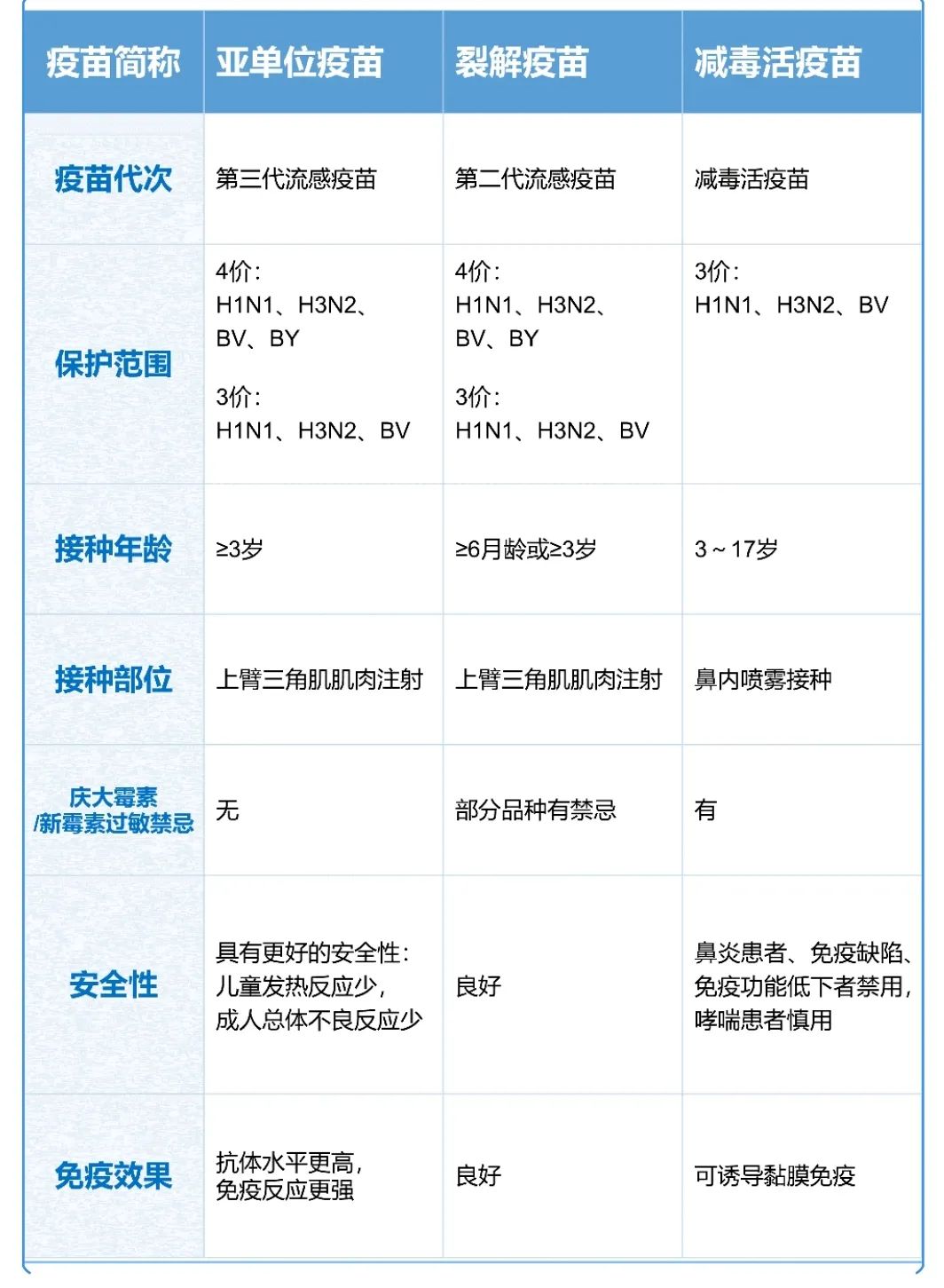
Advice on influenza vaccination

Suggestions on inoculants:
According to the Guide, for inactivated influenza virus vaccines:
Children from 6 months to 8 years old, if they have not been vaccinated against influenza before, should be vaccinated twice for the first time with an interval of ≥4 weeks;
In 2022-2023 or before, one dose or more of influenza vaccine will be vaccinated;
Children and adults aged 9 years and above need only be vaccinated once regardless of whether they have been vaccinated with influenza before.
For live attenuated influenza virus vaccine, no matter whether it has been vaccinated with influenza vaccine or not, only one dose is given.
Suggestions on vaccination timing:
It is suggested that all localities arrange vaccination as soon as the vaccine is available, and it is best to complete vaccination before the local influenza epidemic season. Vaccination units can provide vaccination services throughout the epidemic season. In the same influenza epidemic season, people who have completed the whole vaccination according to the vaccination procedures do not need to be vaccinated again.
It is recommended that pregnant women be vaccinated with influenza vaccine (inactivated influenza vaccine only); Pregnant women can be vaccinated at any stage of pregnancy; Pregnant women should consult a doctor before vaccination if they are undergoing other medication or receiving other vaccines.
Inoculation with Covid-19 vaccine at the same time:
It is suggested that people aged 18 and above can be vaccinated with inactivated influenza vaccine and Covid-19 vaccine at the same time, and attention should be paid to vaccinating both limbs separately.
For those who are vaccinated with live attenuated influenza vaccine and minors under the age of 18, it is suggested that the interval between vaccination and Covid-19 should be more than 14 days.
Other preventive measures and treatment of influenza
Preventive measures:
Maintain good respiratory hygiene habits, cover your mouth and nose with paper towels and towels when coughing or sneezing;
Wash your hands frequently and try to avoid touching your eyes, nose or mouth;
Balanced diet, moderate exercise, adequate rest, etc.
Avoid close contact with patients with flu-like symptoms;
During the flu season, try to reduce going to crowded places;
Once flu-like symptoms appear, you should rest at home, carry out health observation, go to work and attend classes without illness, and wear masks when contacting family members to reduce the spread of the disease; If you find that your condition is getting worse, you should go to the hospital as soon as possible. Patients and caregivers should wear masks to avoid cross-infection.
Treatment plan:
Neuraminidase inhibitors such as oseltamivir, zanamivir and palamivir, and polymerase inhibitor baloshavir are effective drugs for influenza A and B. Early application of anti-influenza drugs, especially within 48 hours of onset, can significantly reduce the severity and mortality of influenza.
Note: Antiviral drugs should be used under the guidance of a doctor.
These points
Also be sure to pay attention to it.
↓↓↓
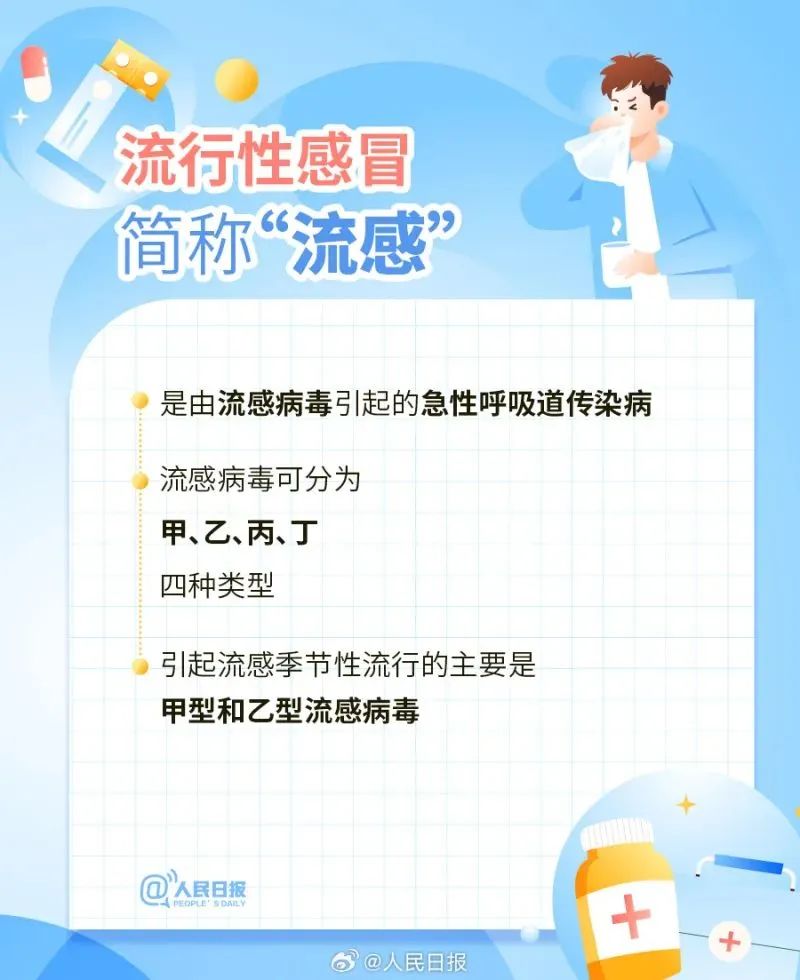
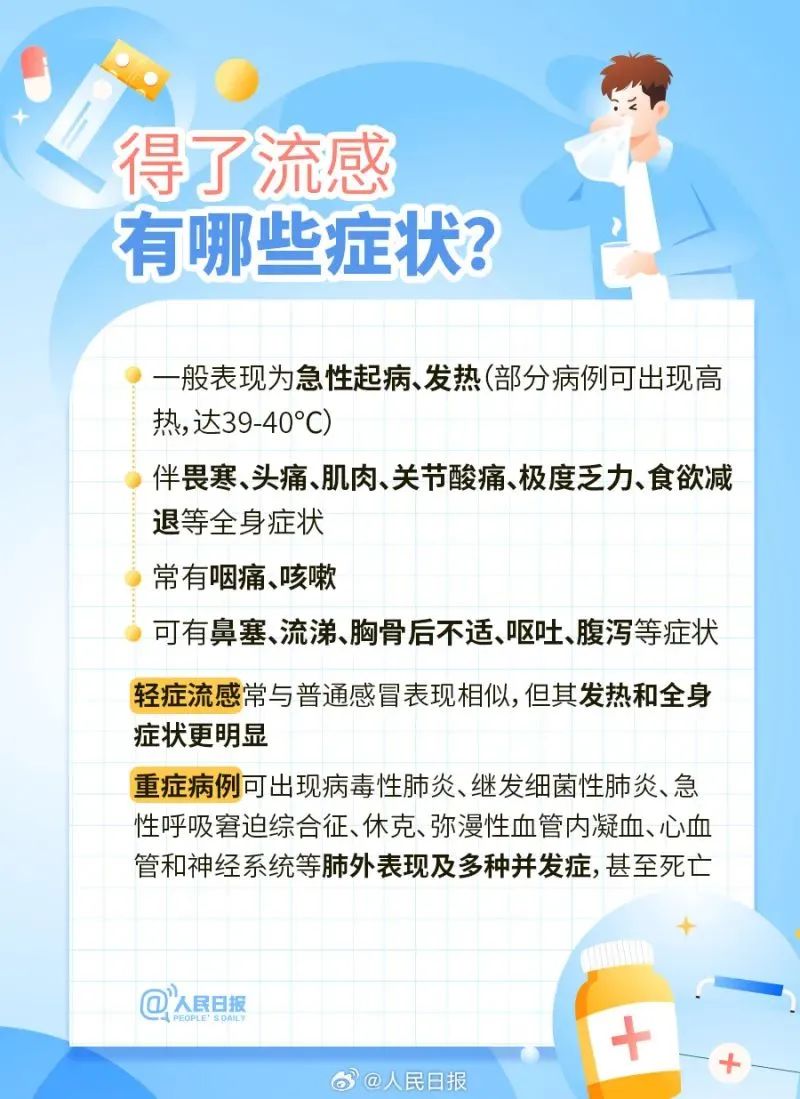
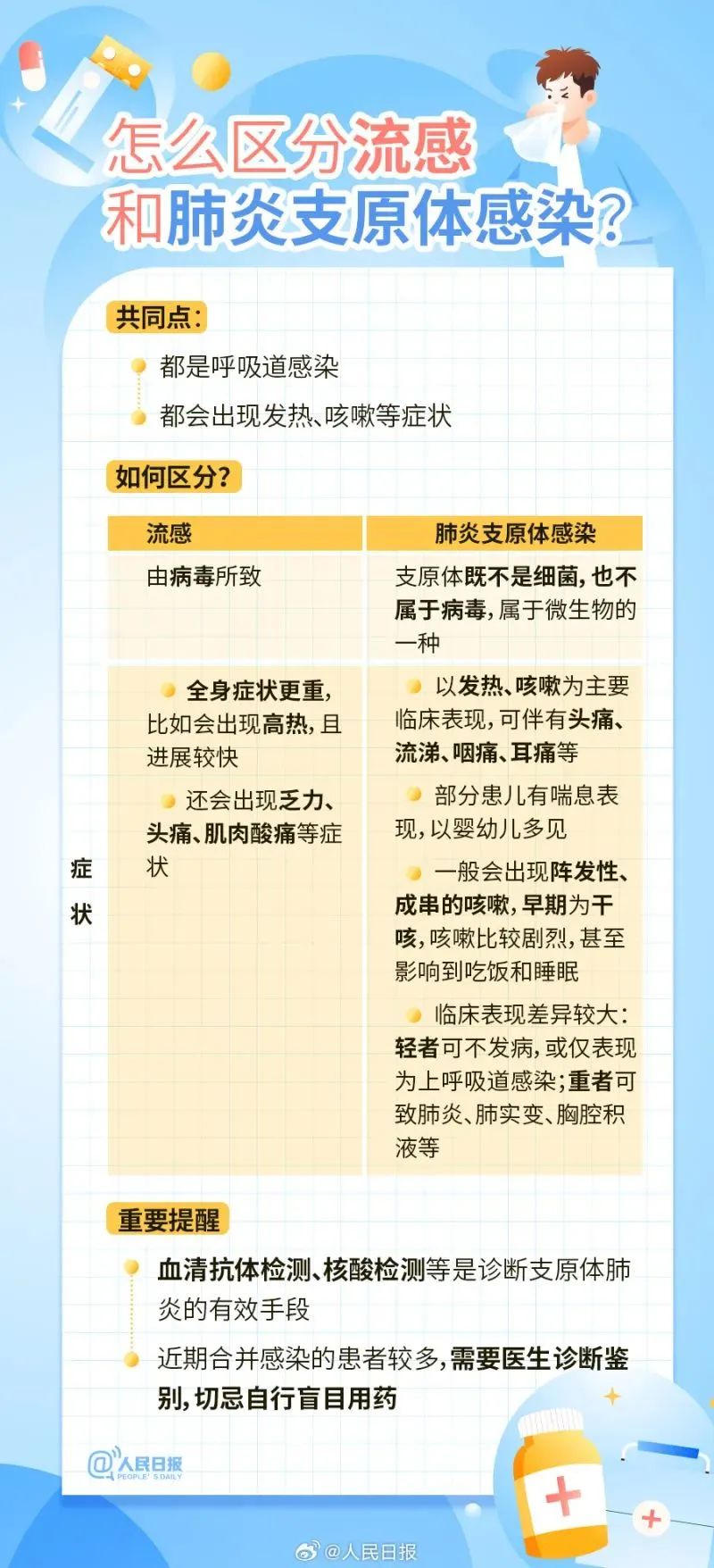
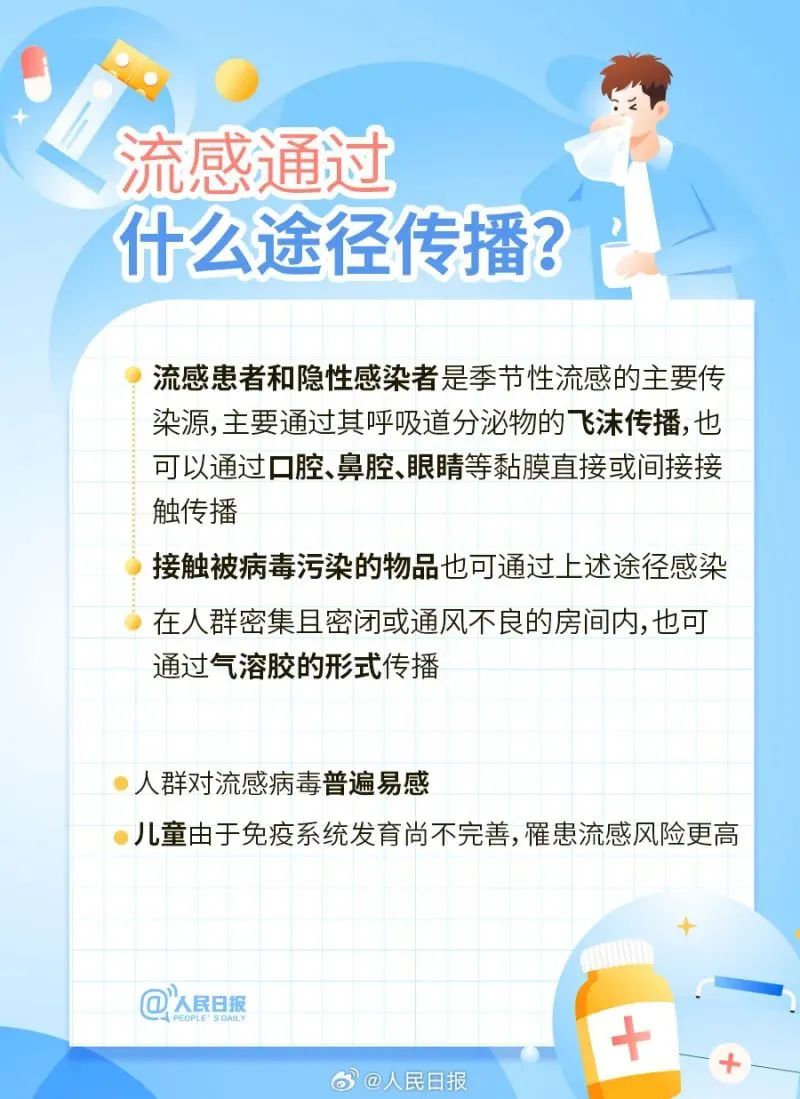
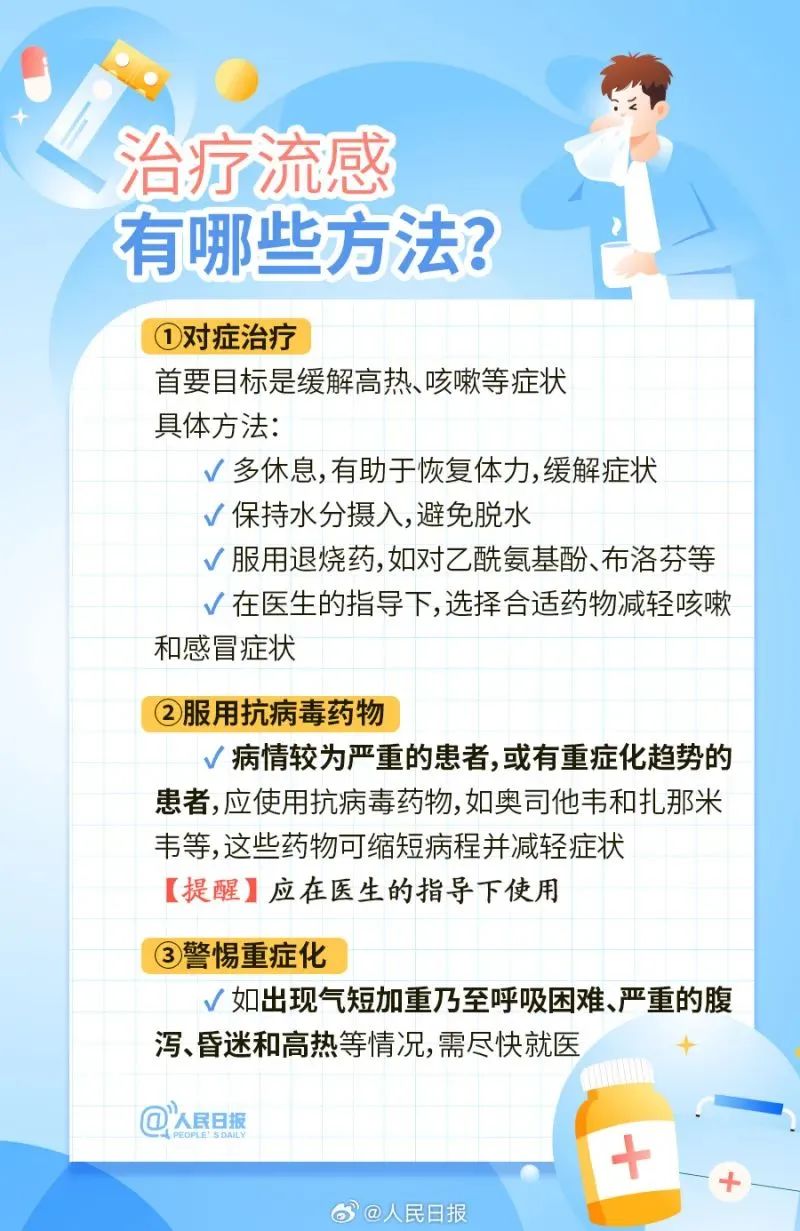
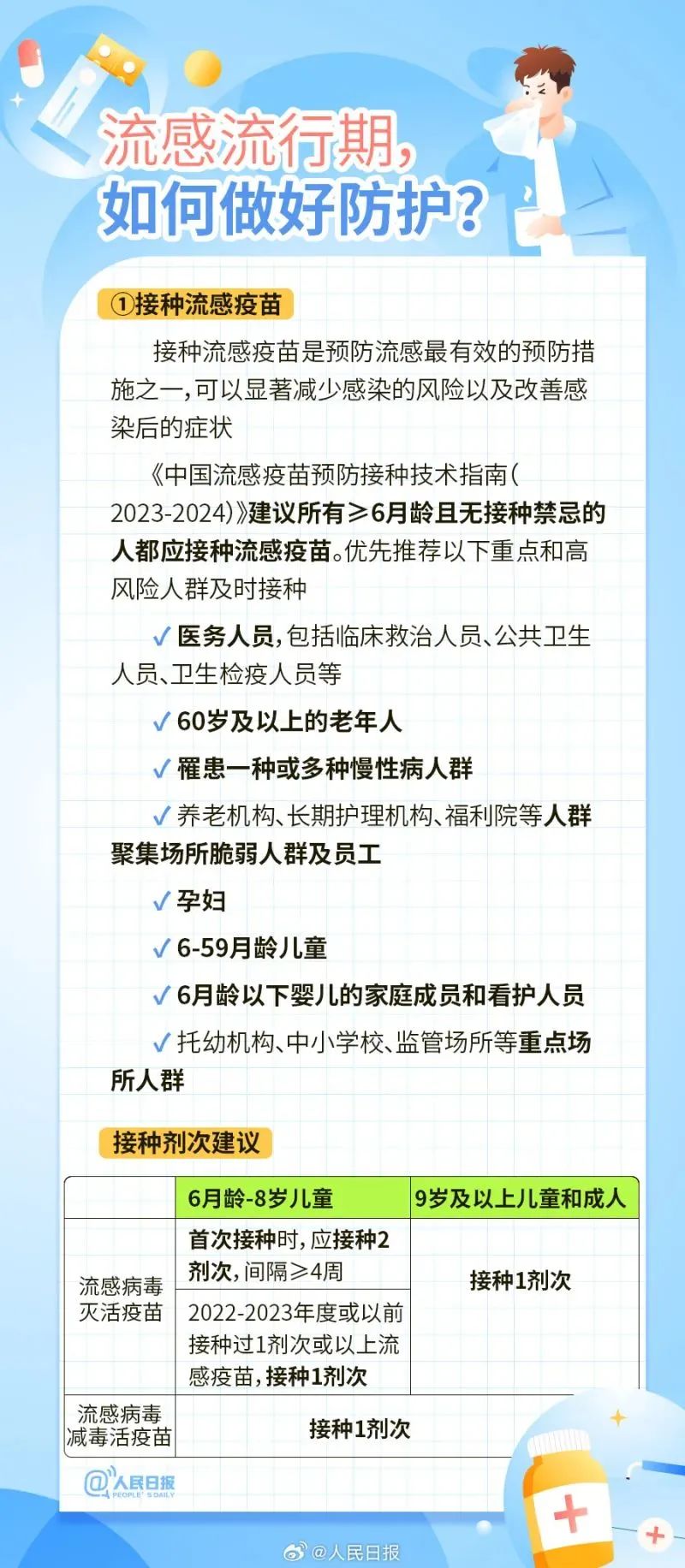
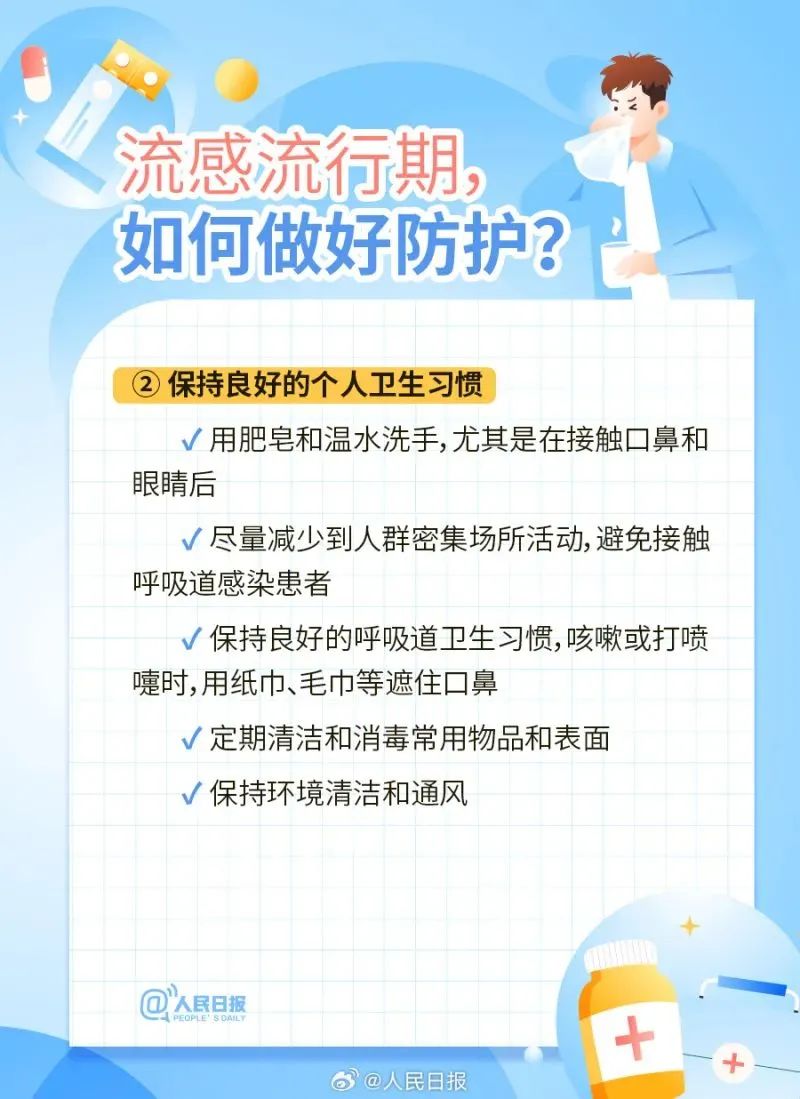
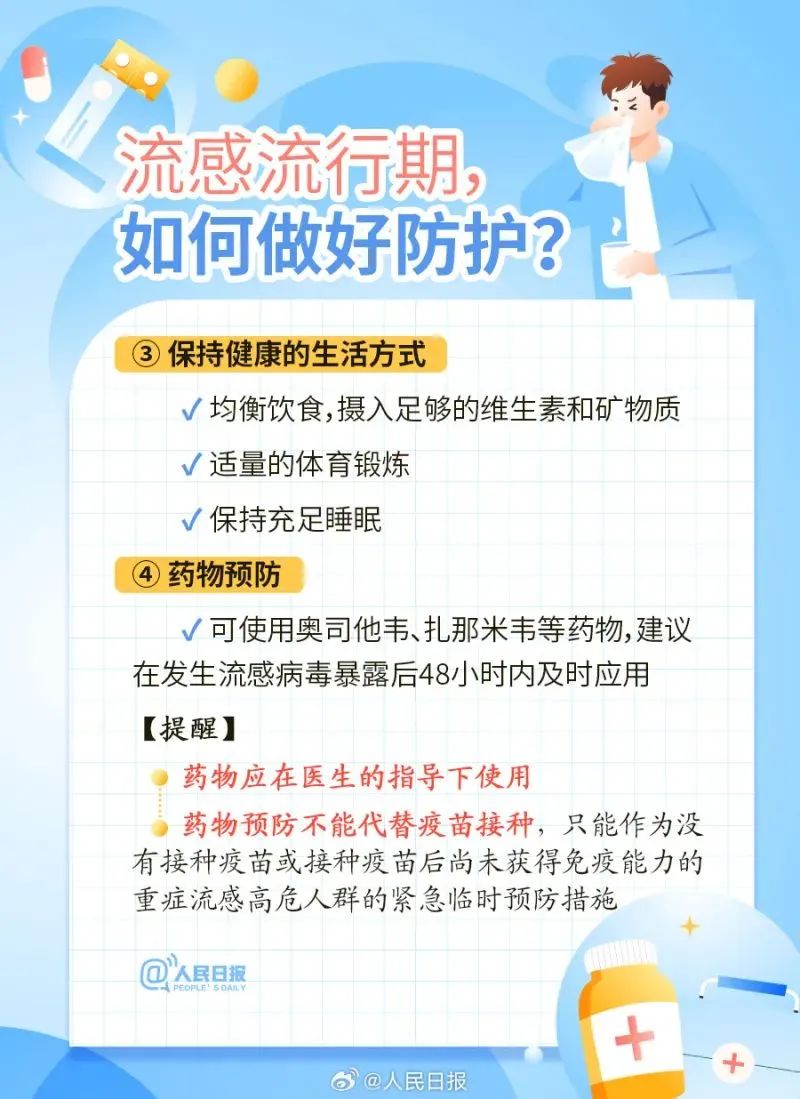
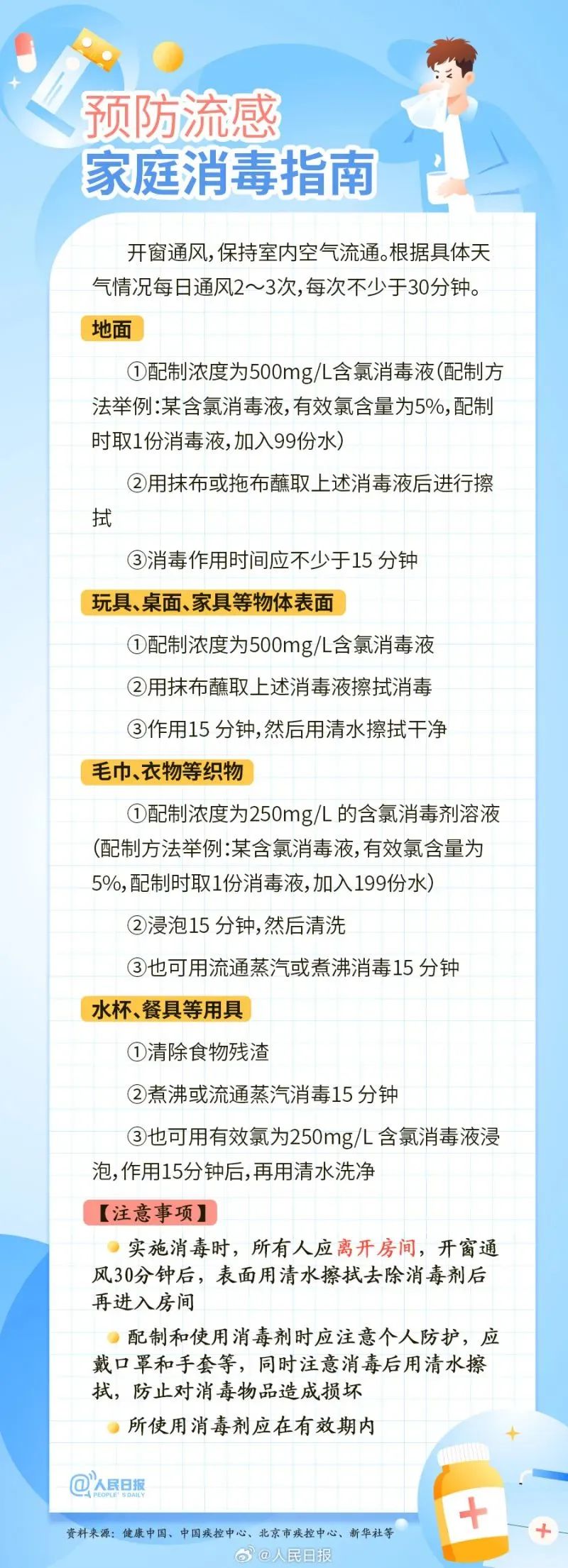
Source: Sichuan CDC, People’s Daily

Look quickly! These are all good news related to Tongjiang!
"Sichuan News Network" pays attention to Tongjiang: the theme education of benefiting people and enterprises is effective.
Our city issued the first batch of funds for the return of stable posts this year! How to apply to see here →
Original title: "The flu season has arrived, please pay attention to these 8 categories of people →"
Read the original text